The exponential growth in stand-up comedy across China in recent years is something few could have predicted.
What was once a relatively unknown concept has become mainstream, especially in China’s first-tier cities where new comedy clubs and open-mic nights are popping up.
Comedian Joe Wong has been at the forefront of this rapid change. After gaining his Ph.D. in molecular biology and working in the field in Boston for eight years, he eventually found that performing stand-up comedy was his true calling in life.
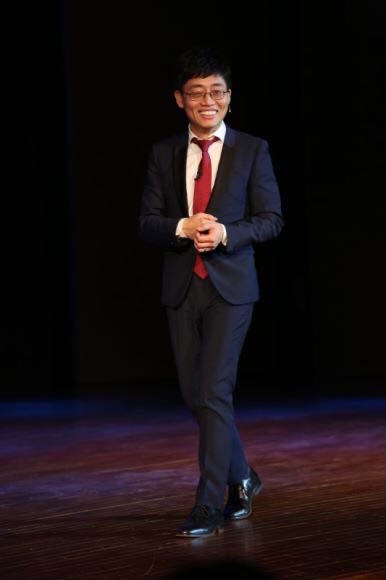
His career saw him make appearances on prime-time American television shows such as The Late Show with David Letterman and The Late Show with Stephen Colbert, The Ellen DeGeneres Show and more.
In 2010, Wong addressed the White House Correspondents Dinner and famously roasted then-Vice-President Joe Biden. Wong said to Biden, “I actually read your autobiography. Today, I see you. I think the book is much better.”
Fellow Chinese comedian Tony Chou noted that performance as a turning point for young stand-up comedians in China, describing it as a “breath of fresh air.”
Thereafter, stand-up comedy only increased in popularity across the Middle Kingdom.
Younger people have particularly taken an interest in comedians who speak to the present-day realities of living in China. The third season of the online variety show Rock and Roast (脱口秀大会) attracted around 190 million views via Tencent Video, with most of the audience aged 19 to 35 years old.
On Friday, July 16, Wong will perform at the Glass Theatre in Tianjin as part of his English-language ‘Out of Place’ tour. The tour was disrupted in 2020 due to the COVID-19 pandemic.
Ahead of the show, That’s sat down with Wong to discuss the growth of grassroots comedy in China and how young stand-up comedians can make their way in the industry.
What made you want to become a comedian in the first place?
I’ve always loved humor. When I worked in biochemistry in Boston, I worked pretty hard but never got promoted. I worked at the same company for eight years.
Later on, I got to know stand-up comedy. I feel that when you’re doing a comedy show and the audience either laughs or doesn’t laugh, you know straight away if you’re doing it right or wrong. I feel it’s a more fair and rewarding profession for me. That’s how I started.

Each comedian has their own ‘brand’ of comedy. Is it possible to label your comedy in this way?
I think it’s always hard to label my own comedy. It's more about what other people think of it.
I tend to talk about disappointing or unsatisfying parts of my life. However, for some reason, a lot of people see it as uplifting. An audience member once commented, “Your comedy show feels like a wedding.”
I guess it could be characterized as ‘intelligent humor’ or something like that. But, as long as people are happy, I’m also pretty happy I guess.
The audience may appreciate my comedy more if they are immigrants. I’m not just talking about people from different countries, but also people who move to another place within their own country. These people tend to understand my jokes better.
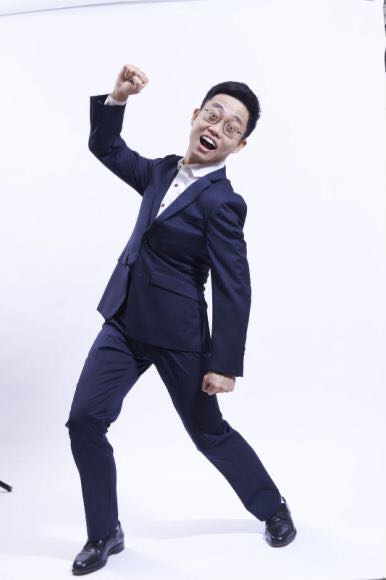
In 2010, you performed at the White House Correspondents’ Dinner. Fellow Chinese comedian Tony Chou described that performance as a breath of fresh air for young aspiring comedians in China. To what extent was that a turning point for the stand-up comedy scene in China?
That’s very nice of Tony to say that! [The reaction to the performance] was something I didn’t expect. From the day after my performance, I got a lot of emails from people in China. Most of them were young students.
Later on, I returned to China to publish a book and do some tours. A lot of young aspiring comedians would come to my shows. At that time, there was only one comedy club in Beijing, which had performances once a week or once a month.
I helped to promote some of their shows on Weibo, and they started to get an audience. I still remember after one show, there were about six or seven comedians and myself stood outside next to a dumpster in a hutong in Beijing. They started asking all sorts of questions such as how comedy shows are organized, what open-mic comedy shows are like and how the professional shows are done in America.
Seven or eight years later, there were about 20 different comedy clubs in Beijing. There are so many different shows every night. It’s been pretty amazing to see such huge changes.
One guy recalled that night to me. He said, “We’re still doing shows in the same way that you taught us to.” For me, it was very gratifying to see this very western form of entertainment taking root in China.
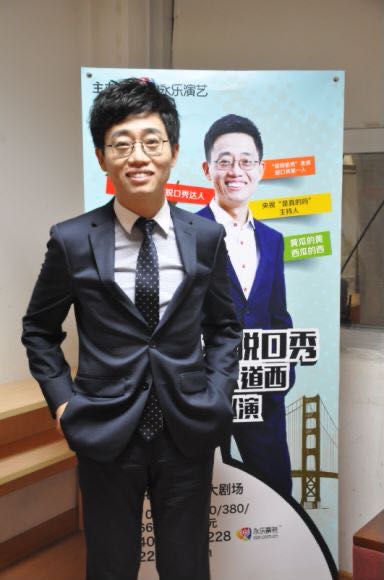
What other factors have contributed to the growth of the grassroots comedy scene in China?
There have been efforts from a lot of different people. In the beginning, there were not that many people who knew about stand-up comedy. However, in recent years, there have been a couple of shows on the internet that have become really popular in China. One of them is Rock and Roast (脱口秀大会), which is a stand-up comedy competition. The other is Roast (吐槽大会), which is the Chinese version of its American namesake.
In the last year, stand-up comedy in China has grown exponentially because of this grassroots movement. There are also other online shows that made stand-up comedy really popular.
You’ve talked before about the importance of online comedy shows. How important were these shows when China was in the midst of the COVID-19 pandemic?
Those shows actually got really popular right after the pandemic. Around May or June 2020, the popularity of those shows exploded. A lot of people had been stuck at home, so they just watched stand-up comedy online. When the third season of Rock and Roast (脱口秀大会) came out, it just became a huge hit.
I have to give that show a lot of credit. The first two seasons were not great. Comedians paid attention to the show, but the general public didn’t pay so much attention.
After the pandemic, people went back and watched a lot of the previous seasons. All of a sudden, a lot of people started to love stand-up comedy, and the third season got a lot of views.
Right now in cities like Beijing, there are more comedy shows than there are comedians. This means that on a Saturday, one comedian can get six to eight shows.
China is particularly good for people who want to start a career in comedy. From playing these shows, you can make a pretty decent living. In the US, it can take a comedian eight to 10 years to get a spot on TV and even longer to become a comedian who can actually support themselves.
In China, however, comedians who have only been in the business for six months to one year can already make pretty decent money just by performing at comedy clubs. They can also make money by doing writing jobs, TV shows and internet shows. There’s an abundance of opportunities in China.
If you could give three pieces of advice to someone starting a career in stand-up comedy in China, what would you say?
Firstly, I would say you have to remember that comedy is a marathon and not a sprint. This may sound like a cliche, but it’s true.
China has a really good comedy scene right now which is reminiscent of the ’80s in America.
Nobody knows how long this growth in comedy in China will last. So, you have to be prepared for the long run. Write good material and be sure to perform as often as possible.
Secondly, be sure to write a lot. The comedy scene is so hot in China right now to the extent that you can make a living by doing crowd work. Those are very easy laughs and the audience loves them. However, if you write your own material, you’ll be able to make more of it.
Thirdly, think carefully about how you can get your breakthrough. There are a lot of opportunities, but the competition is very stiff. I’ve judged and participated in a lot of different stand-up comedy contests. Every half-year, there’s a new crop of young and talented comedians, so you need to be aware of the competition.
What are the main differences and similarities between performing stand-up comedy in the US and China? To what extent do you have to adapt your material and techniques to suit the audiences in either country?
Technique-wise, performances in either country are pretty similar. This includes the joke structure, the ‘rule-of-three,’ etc. The main differences are language and cultural context. A particular word can likely mean different things in the two countries.
It’s kind of hard to translate jokes from English to Chinese and vice versa. I would say about 20% of jokes can be translated into the other language. However, the majority of jokes have to be written from the beginning.
Catch Joe Wang at Glass Theatre in Tianjin this Friday at 7.30pm. Scan the QR code on the poster below to buy tickets.

Fri July 16, 7.30pm; RMB200. Glass Theater.
[All images courtesy of Joe Wong]
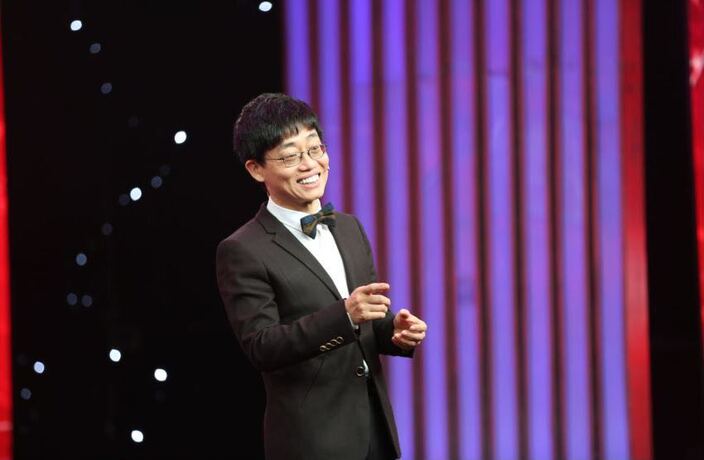




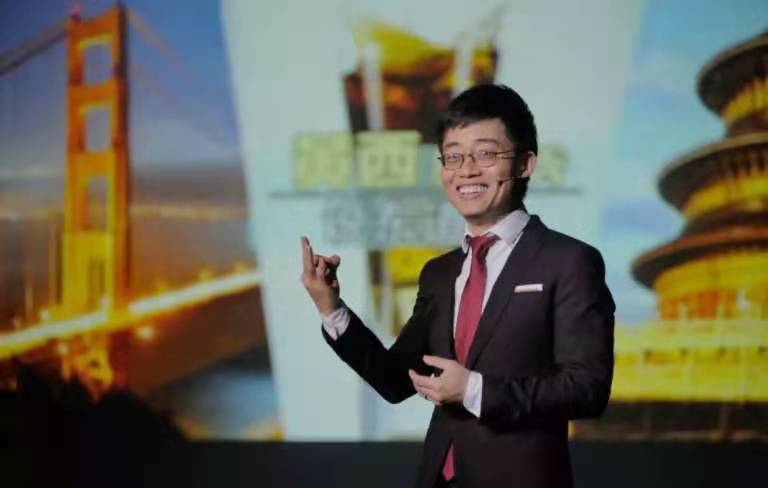

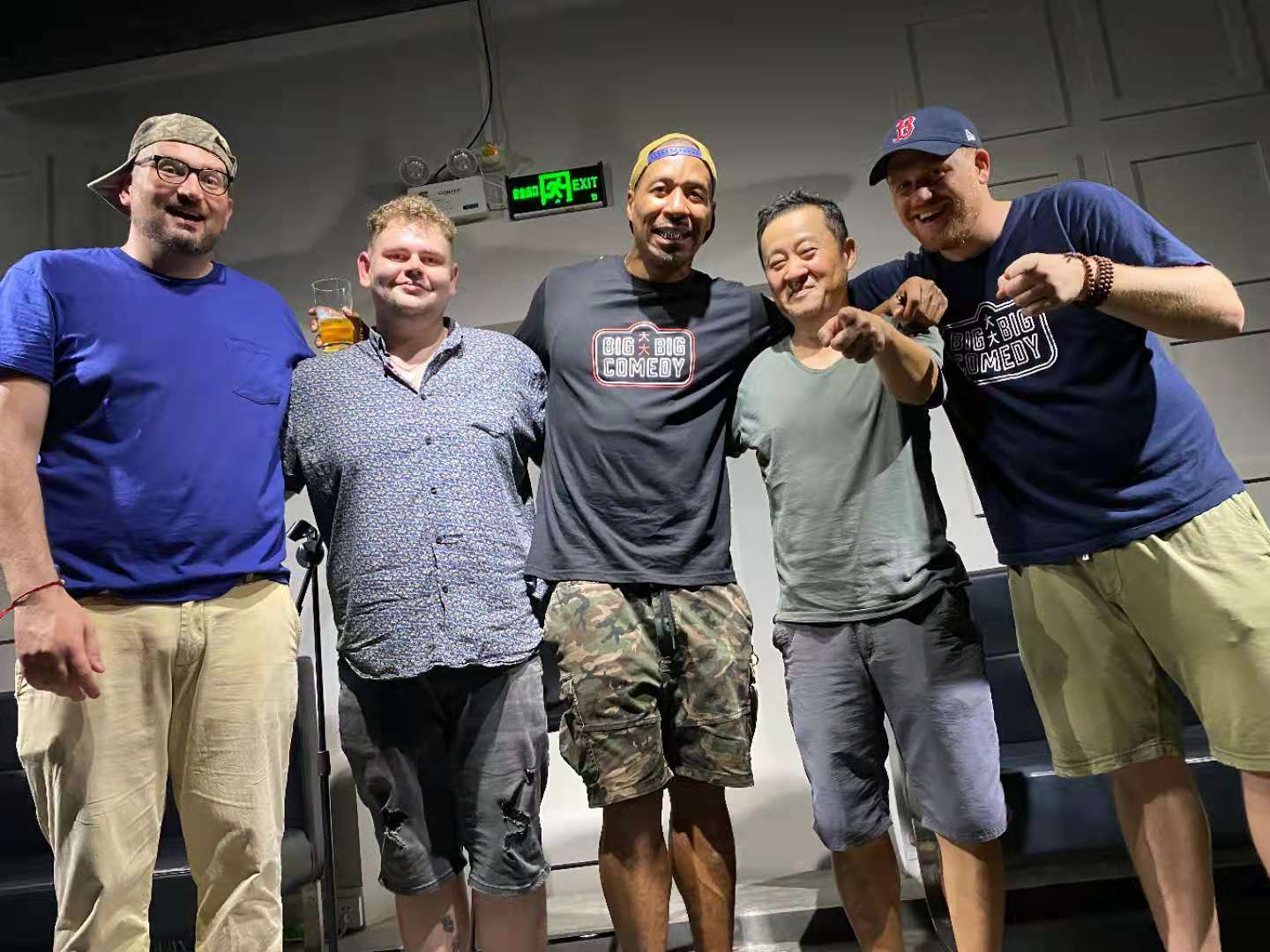













0 User Comments